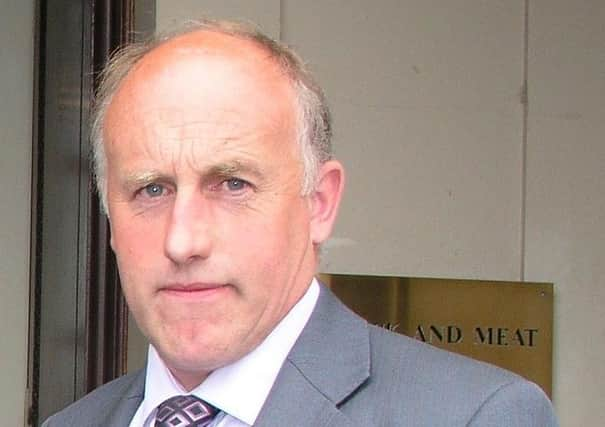FFA concerns over TB eradication


The farm lobby group also points out that Brussels has, as a consequence, fined these same government departments, including the Department of Agriculture, Environment and Rural Affairs (DAERA) for not meeting their responsibilities, where these bTB testing programmes are concerned.
FFA’s William Taylor explained: “We secured this information, courtesy of a freedom of information inquiry. The response received from Brussels has revealed that the EU has allocated substantial funds for the eradication of bTB in the UK since 2010.
Advertisement
Advertisement
“This programme is currently by far the most expensive veterinary programme funded by the EU, amounting to almost 20% of the overall EU veterinary programme annual budget in 2016, 18.6% in 2017 and 14% in 2018. Therefore, meaningful results were expected by EU authorities, with regard to the implementation of this programme.”
According to Taylor, the prevalence of bTB has increased in England and Northern Ireland since the introduction of the EU-supported eradication programme, while falling only slightly in Wales.
He continued: “With a warning shot fired in 2016 of penalties being applied by the EU if targets weren’t met the following year, a 10% fine was duly handed down by Brussels on the 2017 allocation of €24,876,900.
“At this point the EU warned that financial penalties may also apply in 2018 and following years, if the results achieved through this programme did not reach the targets set or not showing clear progress of eradication towards the disease. Once again DEFRA and DAERA failed and this time a 20% fine was handed down on the 2018 allocation of €18,251,976.
Advertisement
Advertisement
“Further financial penalties may apply in 2019 and following years if the results achieved through this programme do not reach the set targets or show clear and sustained progress towards the eradication of the bTB.”
The FFA representative claimed that Northern Ireland’s farm minister, Edwin Poots MLA, had not been made aware by his civil servants of the fines imposed by the EU. William Taylor concluded: “FFA will support the minister in taking whatever steps are necessary to eradicate bTB in Northern Ireland, once and for all.”
Responding, a DAERA spokesperson said: “The UK is one of six countries with a TB programme co-funded by the European Commission. As the result of increasing TB prevalence in 2017 and 2018, the EU reduced its contribution to the cost of the UK’s TB programme. These reductions were confirmed in July 2019, before the Minister came into post.
“The NI share of EU co-funding of the UK TB Programme was reduced by 10% for 2017 and by 20% for 2018. For 2018, this had the effect of reducing the NI share of the UK’s allocation by just over €1m. In 2018-19, the EU contributed £3.8m to the NI TB programme out of overall public expenditure on TB of £40.18m.
Advertisement
Advertisement
“In January 2020, the European Commission approved the NI element of the UK TB Programme for 2020. This decision took account of the reduction in NI herd incidence rates since November 2017 (from 9.78% to 7.84% at December 2019) and the progress made in developing a proposed TB Eradication Strategy for Northern Ireland.
“The reduction in disease levels has occurred since additional measures were introduced by DAERA in early 2018, including an increased application of severe interpretation of the bovine TB skin test and the introduction of a further herd test after a breakdown herd is derestricted in certain situations, to reduce the risk of further breakdowns. These reduced disease levels have also resulted in a £4m fall in TB compensation payments in 2019/20 compared with the previous year.
“The proposed TB Eradication Strategy for Northern Ireland aims to reduce TB levels by comprehensively addressing all the recognised key factors in the spread of the disease. It makes recommendations covering six key areas, ranging from herd health management and research to those more complex issues, which will require public consultation and new legislation. Since coming into post in January, the Minister has been working closely with officials on the detail of the Strategy. The Minister is keenly aware of the high cost of bovine Tuberculosis in Northern Ireland, both to the public purse and to the farming community, and he has made tackling TB here one of his key priorities.”